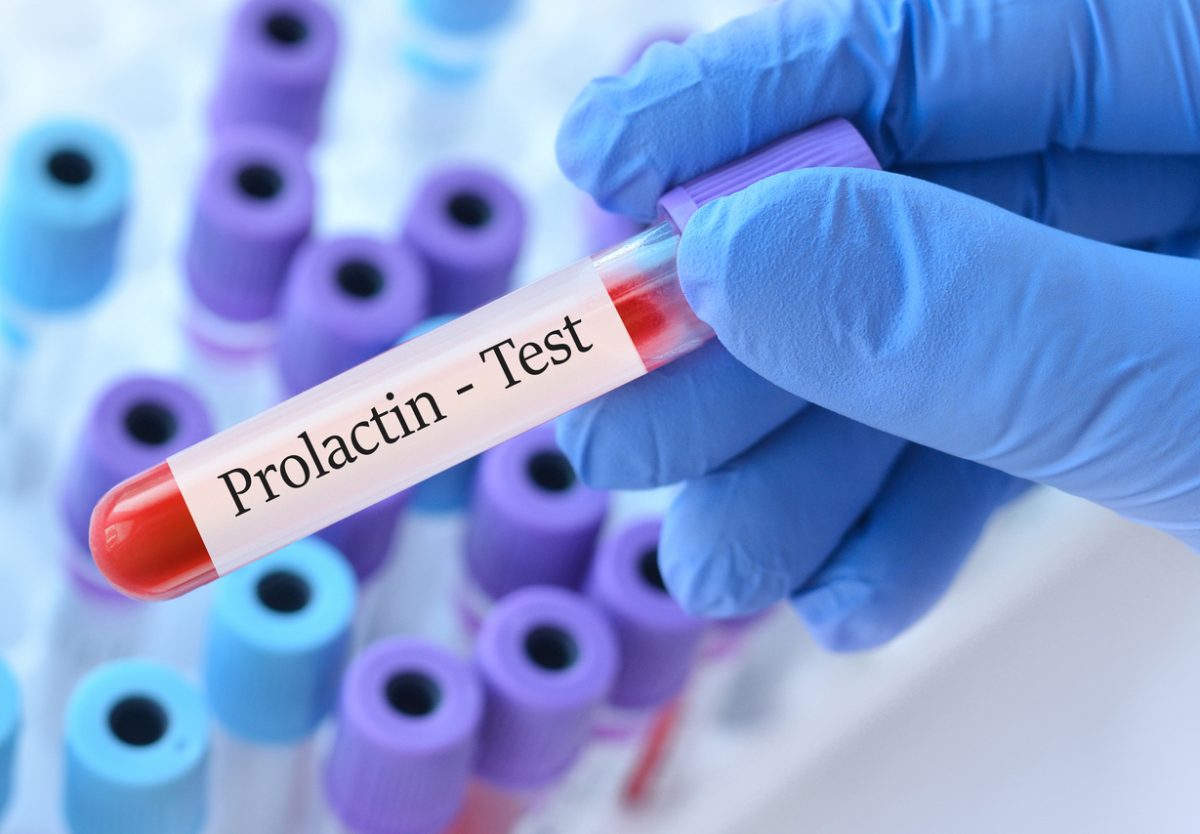
An Atypical Case of Neurosyphilis
Syphilis can have multiple presentations, making clinical recognition difficult. Up to 4%-10% of patients with untreated syphilis develop neurosyphilis.1
The objective of this case report is to emphasize the importance of diagnosis of atypical forms of neurosyphilis, namely presentations with only psychiatric symptoms. We also searched PubMed with the keywords neurosyphilis and psychiatric symptoms to identify articles published in English from January 2000 to January 2018.
Case Report
A 44-year-old married man with no psychiatric history began to experience insomnia and fatigue. Six months later, his clinical condition worsened with intense, diffuse, colic-type, recurrent abdominal pain; anorexia; and unquantified weight loss. He consulted a general practitioner and started spasmolytic therapy with no improvement. Two weeks later, he went to the emergency department. He presented with depressed mood, marked distress, anorexia, hypochondriacal delusions, severe initial and intermediate insomnia, and structured suicidal ideation by hanging with obsessive characteristics and partial insight. He also reported intense abdominal pain. He was observed by a general surgeon who excluded abdominal pain from the organic etiology.
A history of risky sexual behavior had been traced since age 12 years, with penile scarring since the age of 32 years. He denied having undergone antibiotic therapy. He also denied surgical history. He had smoked cigarettes from age 14 to 42 years (28 packs/year) and had no history of alcohol or drug use. His psychiatric family history was positive for suicide in 2 siblings.
The patient was admitted to the psychiatry ward due to suicide risk and was diagnosed with major depressive disorder, severe episode (DSM-5 criteria). The suicidal ideation remitted on the sixth day of hospitalization. However, he maintained marked anxiety, hypochondriac delusions, and severe insomnia despite multiple therapeutic adjustments including antidepressants (sertraline and mirtazapine), antipsychotics (olanzapine and cyamemazine), and benzodiazepines (lorazepam, diazepam, and flurazepam).
A penile scar of about 0.5 cm in diameter on the glans, compatible with a hard cancer scar, was found on physical examination. A complete blood analysis was performed, revealing positive antibody anti-Treponema pallidum (23.83) and rapid plasma reagin (RPR) (1/128) results.
He was observed by a neurologist, who found no neurologic alterations. Computed tomography scan of the head revealed no changes.
Lumbar puncture revealed clear acellular cerebrospinal fluid, with protein elevation (75.9 mg/dL) and decreased glycorrhachia (68 mg/dL; glycemia of 131 mg/dL). A venereal disease research laboratory test in the reagent liquor revealed an antibody titer of 16 (normal < 2).
Thus, diagnosis of neurosyphilis was confirmed and treated with benzylpenicillin 4 million units every 4 hours for 14 days. Throughout the treatment, there was progressive clinical improvement with remission of anxiety and delusions and regularization of sleep and appetite patterns. There was a favorable evolution with a decreasing RPR.
Discussion
Subtle or atypical forms of neurosyphilis are rare but are becoming more common and may manifest only with psychiatric symptoms.2-7 These symptoms include depressive, manic, and psychotic symptoms; behavioral changes; and cognitive deficits.1-6,8-10 According to the literature, the current change in the clinical presentation of neurosyphilis can be explained by the widespread use of antibiotics for varied infections with an inadequate treatment of undiagnosed syphilis.1,3,6,11
This case highlights not only the importance of the differential diagnosis of depression but also the need for a careful investigation for risky sexual behaviors. On the other hand, although routine diagnostic examinations for depression do not include screening for syphilis, such testing should always be performed in the case of clinical suspicion. In conclusion, we consider it important to include neurosyphilis in the differential diagnosis of depression in patients with unusual symptoms or with risky sexual behavior.
Published online: December 3, 2020.
Potential conflicts of interest: None.
Funding/support: None.
Patient consent: Consent was obtained from the patient to publish the case report, and information has been de-identified to protect anonymity.
REFERENCES
1.Zhang HL, Lin LR, Liu GL, et al. Clinical spectrum of neurosyphilis among HIV-negative patients in the modern era. Dermatology. 2013;226(2):148-156. PubMed CrossRef
2.Drago F, Merlo G, Ciccarese G, et al. Changes in neurosyphilis presentation: a survey on 286 patients. J Eur Acad Dermatol Venereol. 2016;30(11):1886-1900. PubMed
3.Gatchel J, Legesse B, Tayeb S, et al. Neurosyphilis in psychiatric practice: a case-based discussion of clinical evaluation and diagnosis. Gen Hosp Psychiatry. 2015;37(5):459-463. PubMed CrossRef
4.Mahendran R. Clozapine in the treatment of hypomania with neurosyphilis. J Clin Psychiatry. 2001;62(6):477-478. PubMed CrossRef
5.Tibrewal P, Kumar I, Zutshi A, et al. Valproate for treatment of agitation in neurosyphilis: a case report. Prim Care Companion J Clin Psychiatry. 2008;10(2):163. PubMed CrossRef
6.Turan S, Emul M, Duran A, et al. Effectiveness of olanzapine in neurosyphilis related organic psychosis: a case report. J Psychopharmacol. 2007;21(5):556-558. PubMed CrossRef
7.Wahab S, Md Rani SA, Sharis Othman S. Neurosyphilis and psychosis. Asia-Pac Psychiatry. 2013;5(suppl 1):90-94. PubMed CrossRef
8.Friedrich F, Geusau A, Greisenegger S, et al. Manifest psychosis in neurosyphilis. Gen Hosp Psychiatry. 2009;31(4):379-381. PubMed CrossRef
9.Keskin G, Sunter G, Midi I, et al. Neurosyphilis as a cause of cognitive decline and psychiatric symptoms at younger age. J Neuropsychiatry Clin Neurosci. 2011;23(4):E41-E42. PubMed CrossRef
10.Zeng YL, Wang WJ, Zhang HL, et al. Neuropsychiatric disorders secondary to neurosyphilis in elderly people: one theme not to be ignored. Int Psychogeriatr. 2013;25(9):1513-1520. PubMed CrossRef
11.Mirsal H, Kalyoncu A, Pektaş Ö, et al. Neurosyphilis presenting as psychiatric symptoms: an unusual case report. Acta Neuropsychiatr. 2007;19(4):251-253. PubMed CrossRef
aDepartment of Psychiatry and Mental Health, Hospital Distrital de Santarém, Santarém, Portugal
*Corresponding author: Nuno A. Fernandes, MD, Department of Psychiatry and Mental Health, Hospital Distrital de Santarém, EPE, Avenida Bernardo Santareno 3737B, 2005-177 Santarém, Portugal ([email protected]).
Prim Care Companion CNS Disord 2020;22(6):20l02593
To cite: Fernandes NA, Martins MA, Ferreira LP, et al. An atypical case of neurosyphilis. Prim Care Companion CNS Disord. 2020;22(6):20l02593.
To share: https://doi.org/10.4088/PCC.20l02593
© Copyright 2020 Physicians Postgraduate Press, Inc.
Enjoy this premium PDF as part of your membership benefits!





